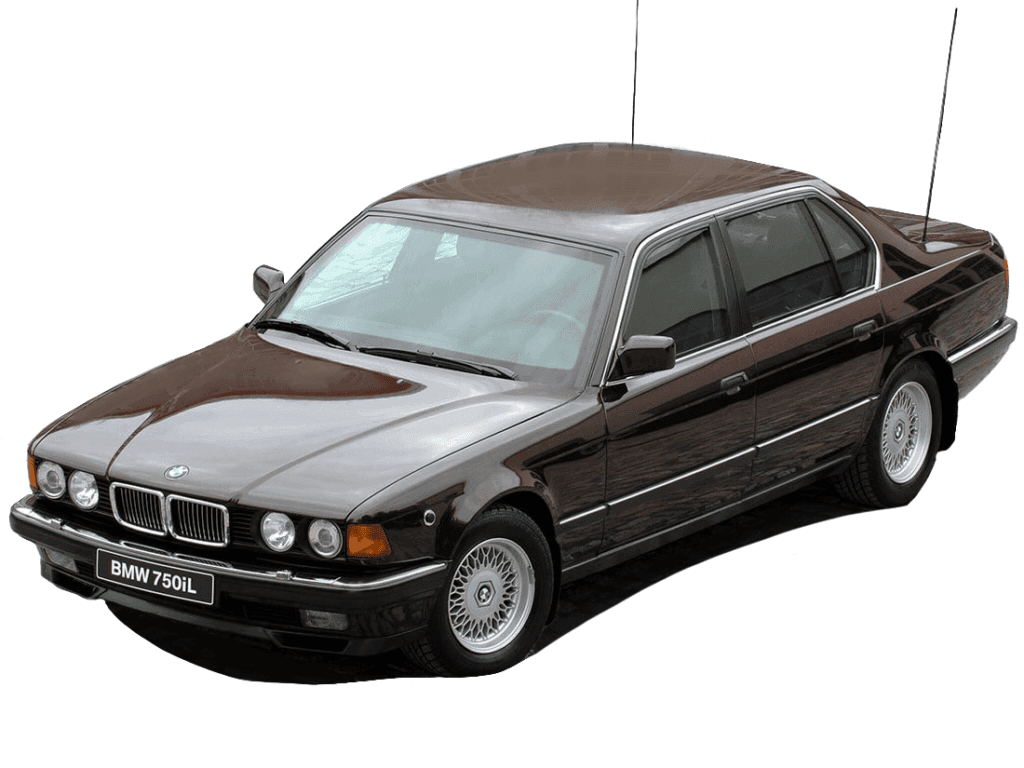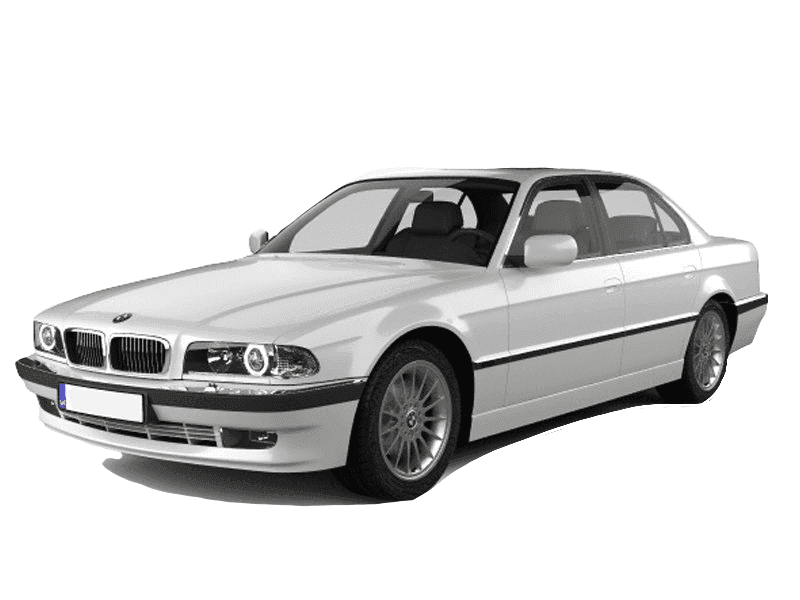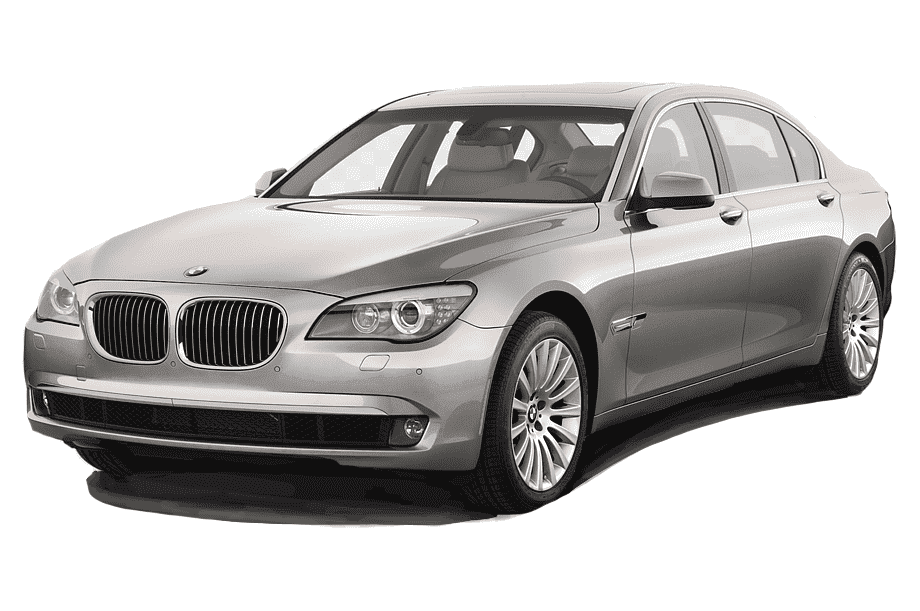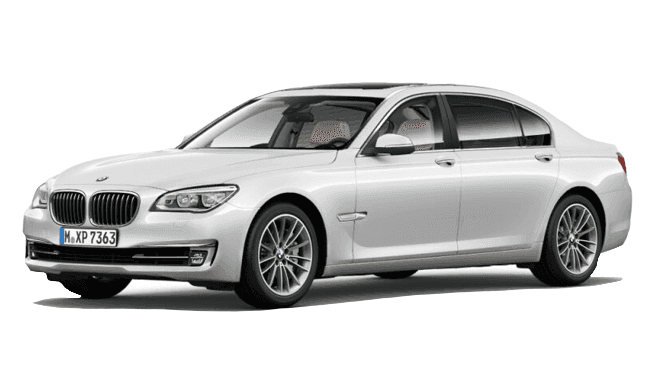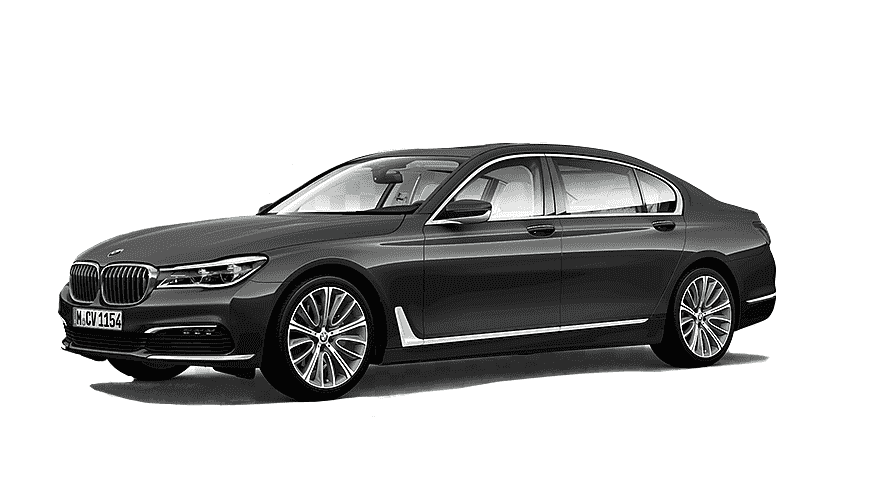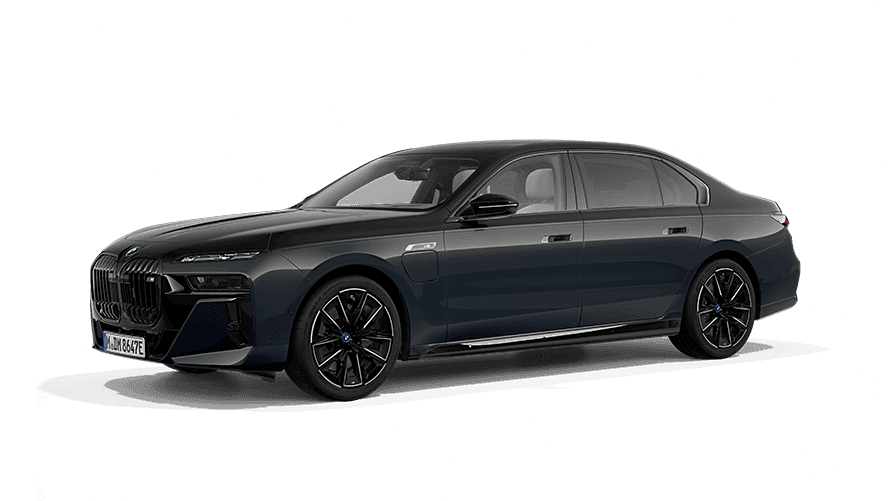Our accessories
Click on your model :
The Saga of the BMW 7 Series Through the Generations
Since its debut in 1977, the BMW 7 Series has charted an exceptional course, becoming an icon of the luxury automotive industry. Each generation of this iconic sedan has witnessed a significant evolution, constantly pushing back the boundaries of innovation, design and performance.
The first generation, the E23, introduced avant-garde electronic features for its time, raising the level of sophistication in the premium sedan segment. Then came the second-generation E32, with its V12 engines, xenon headlights and CAN bus system, redefining automotive luxury in the 80s and 90s.
The move to the E38 marked the introduction of the diesel engine to the 7 Series, bringing a more efficient option without compromising on power. Then, the E65 shook up the industry with iDrive and a revolutionary design, while continuing to push the boundaries of technological innovation.
The next generation, the F01, introduced hybrid powertrains and modernized styling. More recently, the G11 marked a new era with extensive use of lightweight materials and a modular platform, underlining BMW's commitment to efficiency and sustainability.
Finally, in 2022, the all-new G70 and the electric BMW i7 reaffirmed the 7 Series' position as a pioneer of innovation. With features such as the BMW Intelligent Personal Assistant and diversified powertrain options, it continues to redefine contemporary luxury.
Through the generations, the BMW 7 Series has remained true to its heritage while embracing the future, offering car enthusiasts an experience that transcends mere driving to become a true communion with automotive excellence. Join us on a journey through the history of the 7 Series, where luxury, innovation and performance meet in a timeless automotive symphony.
First-generation 7 Series
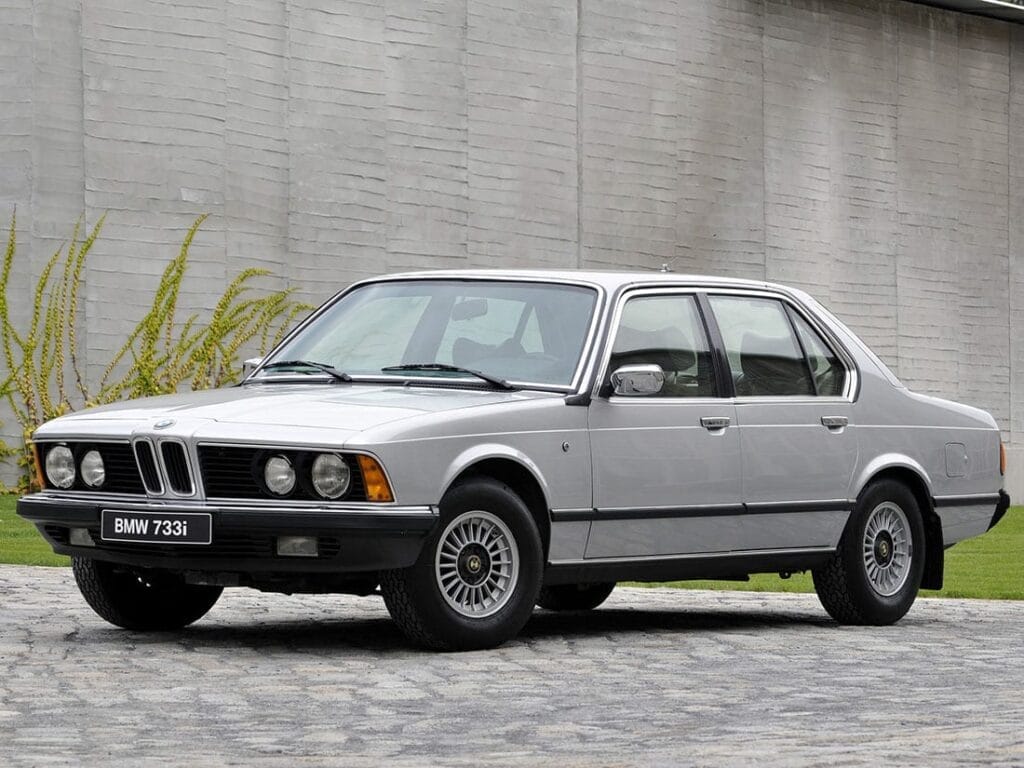
The BMW 7 Series E23, the first in its line, was unveiled in 1977 and marked the beginning of an era when sportiness, technical innovation and luxury met at the highest level. Designed as the successor to the E3 series sedans, it was equipped with six-cylinder engines, surpassing expectations for performance and efficiency at every power level. Under the direction of Paul Bracq, the body design featured elements such as the descending front and rear sections, as well as a low beltline, underlining the sportiness characteristic of luxury sedans.
As early as 1978, the 7 Series E23 introduced modern features such as automatic electronic climate control and cruise control. In 1979, it marked a further technological step forward with the adoption of anti-lock braking systems (ABS) and digital engine electronics. The same year, all engines switched to fuel injection, boosting efficiency and performance.
In 1980, the top-of-the-range BMW 745i made its debut, with an impressive 185 kW (252 hp) and a top speed of 227 km/h. In 1982, a renewal of the model brought significant improvements, including a four-speed automatic gearbox and a revised chassis. In its nine years of production, the E23 7 Series established a triumphant presence with over 270,000 vehicles produced, continuing BMW's tradition of modern high-end sedans.
Production period: 1977-1986
Engines: 2.5 - 3.4 liters (110 - 185 kW, 150 - 252 hp), 6-cylinder
Length/width/height: 4,860 mm/1,800 mm/1,430 mm
Second-generation 7 Series
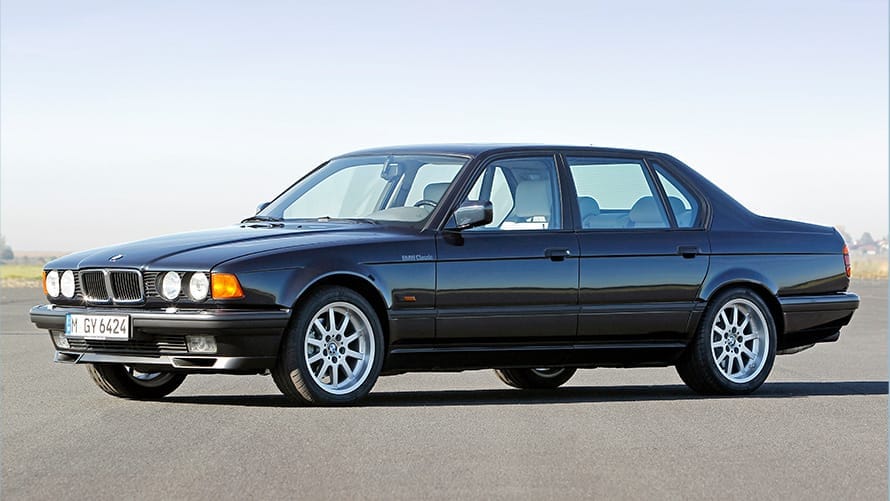
The second-generation BMW 7 Series, also known as the 7 Series E32, marked a period from 1986 to 1994. This luxury sedan was a milestone in the German automotive world, introducing innovative features and technological advances that helped define the standards of the time.
Under the direction of designer Claus Luthe, the design of the 7 Series E32 was characterized by harmonious lines and assertive dynamic elements. The wide front nostrils and imposing L-shaped rear lights gave the car a distinctive visual presence. This generation marked the introduction of revolutionary features, including Electronic Damper Control, V12 and V8 engines, double glazing, CAN bus electronic protocol, xenon headlights, traction control, and dual-zone air conditioning.
In 1987, the E32 7 Series was the first to offer a 5.0-liter V12 engine, setting a new standard for power and performance. This generation also marked the introduction of "iL" models, offering for the first time a long-body option for maximum comfort. Exclusive features such as an on-board refrigerator and car telephone were available in the High Line equipment line, adding a touch of superior luxury.
With the arrival of 1991, the 7 Series E32 continued to evolve, offering the option of xenon lighting, a cutting-edge technological feature at the time. By 1994, some 310,000 E32 7-Series had been produced, consolidating its status as an iconic luxury sedan.
The BMW 7 Series E32 remains a benchmark in the history of the automotive industry, combining elegant design, technological innovation and outstanding performance.
Third-generation 7 Series
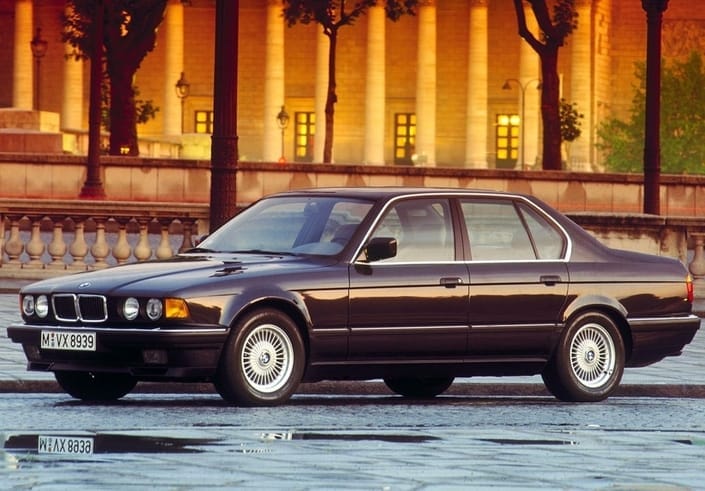
The BMW 7 Series E38, the third generation of the prestigious line, marked its era with a bold combination of luxury, innovation and performance. Produced from 1994 to 2001, this iconic sedan remained true to the spirit of the 7 Series, offering a range of models with remarkable performance and cutting-edge technology.
Since its launch in 1994, the 7 Series E38 has generated enthusiasm thanks to its many technical innovations. Top of the list was the first European car to integrate a navigation system, marking a turning point in the driving experience. In 1997, it also became a pioneer in safety with the introduction of side airbags for the driver and front passenger, followed in 1998 by head airbags for added protection.
The 7 Series E38's engine range was diverse, offering options from six-cylinder petrol engines to powerful V8s and V12s. In 1994, the 7 Series revolutionized the market by being the first to offer a diesel engine, adding a 3.0-liter turbocharged 6-cylinder to its options.
In 1999, the 7 Series E38 received a facelift, adding even more dynamism to its design with redesigned headlights and taillights. The V8 diesel variant, with an impressive 180 kW (245 hp), set new performance standards. The flagship model, the BMW 750i/750iL, equipped with a majestic 5.4-liter V12 engine producing 240 kW (326 hp), maintained the 7 Series' reputation as a benchmark for top-of-the-range performance.
This generation also paved the way for environmentally-friendly developments with the small-scale production of the hydrogen-powered BMW 750hL in 2000, underlining BMW's commitment to environmental innovation.
In all, some 327,000 BMW 7 Series E38 models were produced, testifying to the success and lasting influence of this iconic generation.
Fourth-generation 7 Series
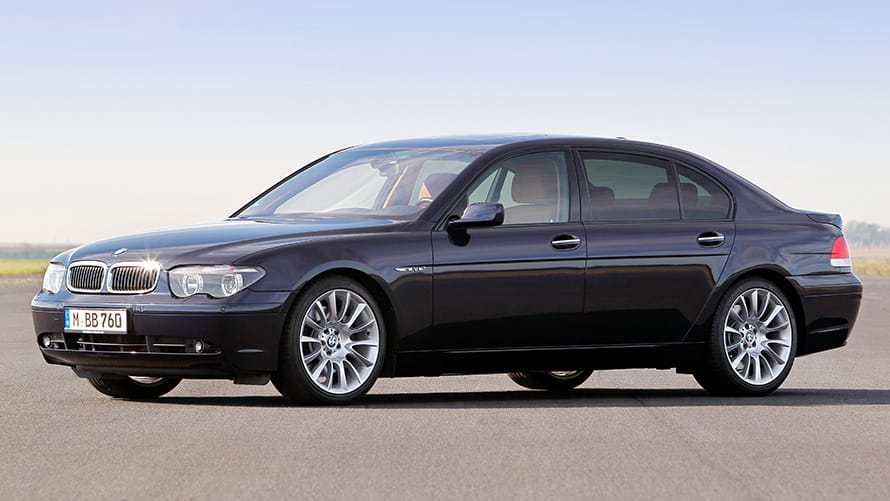
The fourth generation BMW 7 Series, represented by the E65/E66/E67/E68 models, marked a milestone in the series' history, with its introduction in 2001. Under the direction of designer Chris Bangle, the 7 Series adopted an innovative design characterized by the famous "flame-surfacing" aesthetic. The exterior silhouette was striking, with redesigned headlamps and a distinctive trunk lid.
The interior has been revolutionized by the introduction of the iDrive system, an intuitive control interface that has simplified access to over 700 vehicle functions using a single multifunction button. This innovative system has helped to reduce the number of physical control elements, offering a more streamlined and ergonomic approach.
Under the hood, the E65/E66/E67/E68 7 Series introduced a number of technological advances, including a six-speed automatic gearbox with a steering-wheel-mounted selector lever, a world first at the time. The flagship model, the 760i, was powered by the world's very first production V12 engine to use direct injection, developing an impressive 327 kW (445 hp) from a displacement of six liters.
Over the years of production, the 7 Series has benefited from technical updates, including the addition of features such as adaptive bend lighting, anti-dazzle high beams and the BMW Night Vision system. The range also included special variants, including the long version (E66), the special protection version (E67) and the hydrogen-powered version (E68).
The fourth-generation production period runs from 2001 to 2008, marking an era of innovation and technological progress for the BMW 7 Series.
Fifth-generation 7 Series
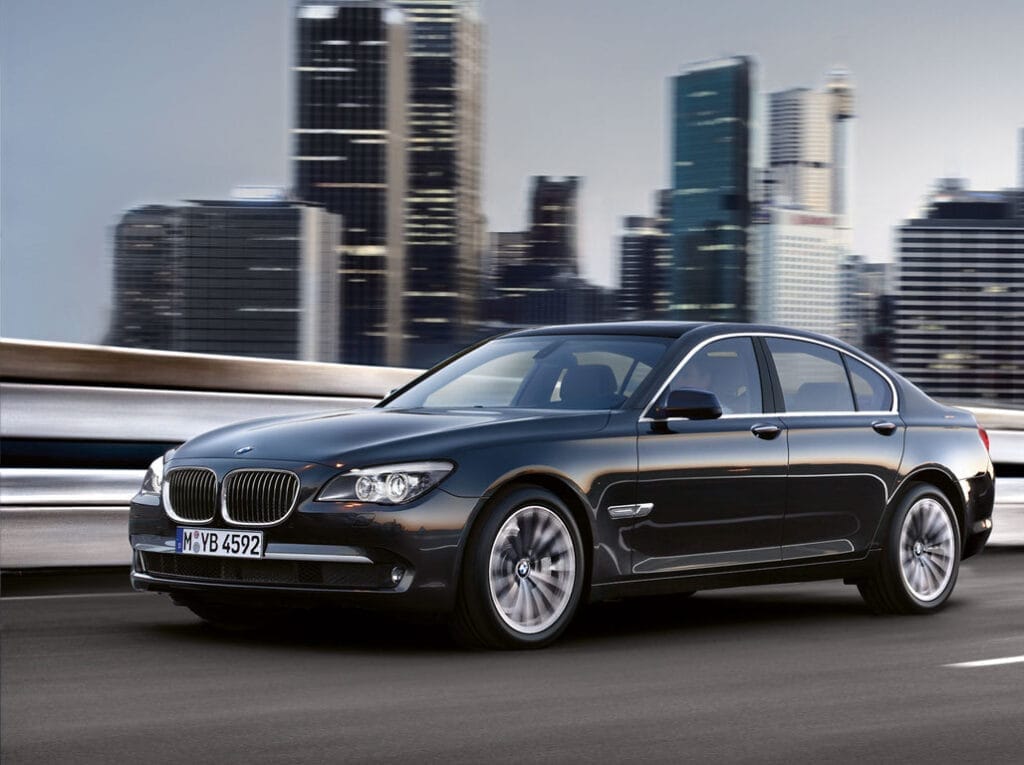
The 7 Series F01/F02/F03/F04, the fifth generation of BMW's iconic range, has redefined the standards for driving dynamics, remarkable presence and exceptional comfort. Launched from 2008 to 2015, this flagship sedan was distinguished by its elegant yet sporty design, embodying the quintessence of automotive luxury.
Aesthetically, the 7 Series F01 made its mark with a long hood, low roofline and dynamic proportions. A chrome strip runs across the entire rear section, emphasizing the vehicle's width alongside the taillights. The interior has been designed with exclusive, high-quality materials, offering a refined, comfortable driving experience.
In terms of innovation, the 7 Series F01 was a pioneer, being the first BMW to offer a hybrid powertrain with the introduction of the "ActiveHybrid 7" model. It also inaugurated features such as an 8-speed automatic transmission, a turbocharged V12 engine, a turbocharged petrol engine, and all-wheel drive (xDrive).
Under the hood, a range of diesel and gasoline engines powered the 7 Series, with twin-supercharged turbo models including the powerful BMW 760i with a V12 engine developing a remarkable 400 kW (544 hp). The 7 Series F01 thus offered sporty performance while incorporating cutting-edge technologies such as distance control, lane departure warning and BMW head-up display.
The technical evolution of 2012 has enriched the user experience with a new central screen with 3D optics, enhanced driver assistance systems, including LED anti-glare high beams, and revamped engines for increased efficiency.
The 7 Series F01 has set new standards, combining sophistication, performance and innovation in the world of luxury sedans, solidifying its iconic status within the BMW range.
Sixth-generation 7 Series
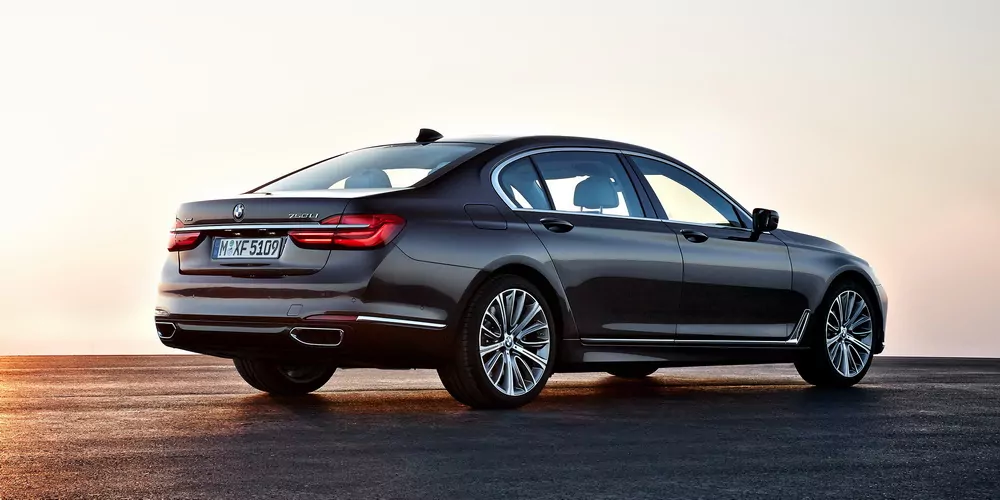
The sixth-generation BMW 7 Series (G11), launched in 2015, embodies the exceptional combination of dynamism, precision, imposing presence and exclusive luxury. From the very first glance, its sophisticated silhouette captures attention, highlighting paintwork with changing effects and a distinctive rear design. From 2019, the aesthetics are accentuated by LED headlamps linked by a thin strip of light, creating a resolutely assertive look.
Built on the OKL (Oberklasse, meaning luxury class in German) modular platform, the 7 Series (G11) is the first in the BMW range to adopt BMW i model technology, incorporating chassis components made of carbon-fiber-reinforced polymer. This innovative design significantly reduces weight, contributing to the sedan's exceptional performance.
The interior of the 7 Series impresses with its high-end customization, featuring exclusive materials such as Nappa leather upholstery and customizable interior design options. Rear passengers, who enjoy optimum comfort in the Executive Lounge variant, can benefit from adjustable massaging seats and a 360° all-round view. The panoramic headliner, known as the Sky Lounge, offers a personalized lighting ambience.
Advanced technology is at the heart of the driving experience, with the BMW Intelligent Personal Assistant offering mobile access to applications and services. BMW Connected connectivity ensures seamless synchronization with the smartphone, while features such as the semi-automatic parking exit demonstrate the innovation and technological sophistication of the 7 Series.
The 2019 version, with its evolving design, features an enlarged grille and redesigned headlamps, further emphasizing the presence and width of this exceptional luxury sedan.
Production period: 2015-2022
Engines: 2.0 - 6.6 liters (183 - 448 kW, 249 - 610 hp), 4, 6, 8 and 12 cylinders
Length/width/height: 5098 - 5260 mm/1902 mm/1467-1479 mm
Seventh-generation 7 Series

The all-new BMW 7 Series, unveiled in April 2022, embodies the pinnacle of luxury and innovation in the prestige automotive segment. Redefining the standards of elegance and performance, this luxury sedan offers a captivating blend of iconic design, cutting-edge technologies and diverse powertrain options.
Elegant and innovative design :
At the front, the 7 Series boasts an iconic design with illuminated nostrils and horizontally split LED headlamps, creating an elegant and distinctive aesthetic. BMW Iconic Glow crystal headlights with backlit Swarovski elements add a touch of sophistication. The interior, meanwhile, offers a luxurious atmosphere with high-end materials such as Merino leather, cashmere wool and Swarovski crystals.
Cutting-edge technology :
The interior is a perfect fusion of elegance, comfort and innovation. The cockpit features modern driver-oriented technology, with the crystal BMW Interaction Bar and the large 14.9″ BMW Curved Display. These elements guarantee an immersive multimedia experience and intuitive operation.
Exceptional comfort for all passengers:
The 7 Series ensures total comfort for all occupants. The 31.3″ BMW Theatre screen creates a cinematic ambience, while the Bowers & Wilkins Diamond Surround Sound system offers crystal-clear sound and a 4D audio experience, creating an exceptional rear-seat experience.
Various motorization options :
The engine range offers powerful options, from diesel powertrains to plug-in hybrids, with the novelty of the BMW i7, a revolutionary electric variant. The BMW i7 xDrive60, equipped with two electric motors, offers a combined output of 536 hp, acceleration from 0 to 60 mph in 4.5 seconds, and a remarkable electric range of 300 to 318 miles.
Sustainable and Dynamic Mobility :
The 7 Series embodies sustainable mobility with the BMW i7, offering over 600 km of electric range. BMW IconicSounds Electric, specially composed by Hans Zimmer, accompanies every driving mode, adding a unique sonic dimension to the driving experience.
In short, the BMW 7 Series 2022 redefines excellence in the luxury sedan segment, combining sophistication, performance and durability in a way that transcends expectations.

